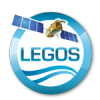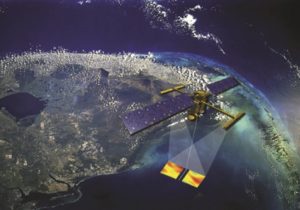Publisher: Direction – Updated on 20/12/2023
Scientific objectives
The DYNOTROP team is built around a common object of study: the tropical oceans. Research is organized around 4 main axes:
● Characterize and understand the variability of physical (currents, mixing, temperature, salinity) and biogeochemical (O2, nutrient salts) properties of tropical oceans.
● Clarify the role of fine-scale dynamic processes (sub-mesoscale, internal waves, diurnal cycle) in the tropics and their interactions with large-scale and/or low-frequency variability.
● Characterize and forecast the hazards affecting tropical oceans: marine heat waves, hypoxia, coastal submersion, proliferation of pelagic sargassum, climate variability in relation to the main modes of climate variability (ENSO, PDO, AMM, Atlantic Niño).
● Improve the understanding of couplings or dynamics at the interfaces between the physical ocean and the various components of the land system. This includes the dynamics of estuarine zones, the influence of inputs from major tropical rivers, ocean-atmosphere and physical-biogeochemical couplings, and the dynamics of oxygen minimum zones and their impacts on climate and ecosystems.
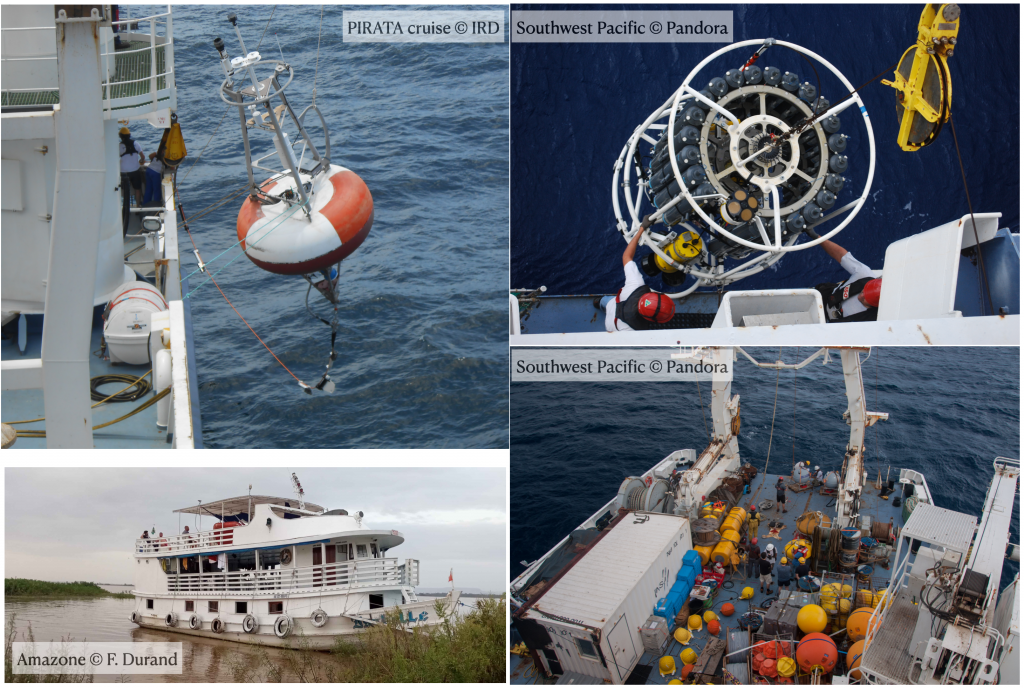
Strategy and tools
Our strategy is based on the collection and analysis of in situ physical and biogeochemical observations, laboratory experimentation, the development of regional ocean models, and the definition and exploitation of satellite measurements.
In particular, DYNOTROP is responsible for 2 National Observation Services – the surface salinity network in the global ocean (SNO SSS) and the meteo-oceanic moorings network in the tropical Atlantic (SNO PIRATA), as well as an instrumentation and experimentation platform (PACOP). The team leads oceanographic campaigns on the open sea, coasts and estuaries (e.g. SWOTALIS 2023, PONCHO 2023, SWOT-Brazil 2023, PIRATA 2020-2023, Dinâmica Fluvial 2020-2023, for the most recent), and is involved in international observation programs (TPOS2020, TAOS, PIRATA international).
DYNOTROP develops high and very high resolution regional numerical simulations (from ~100m for estuaries to 25km for basin simulations) with community ocean models (NEMO, SHISM, CROCO), atmospheric models (WRF) and biogeochemical models (PISCES, BIO-EBUS). It develops the NEMO-Sarg Sargassum model and 0D and 1D models of biogeochemical processes (AMOS). The team also works with global simulations (CMIP6) and end-to-end ecosystem models and brings expertise to operational oceanography and Mercator Ocean International.
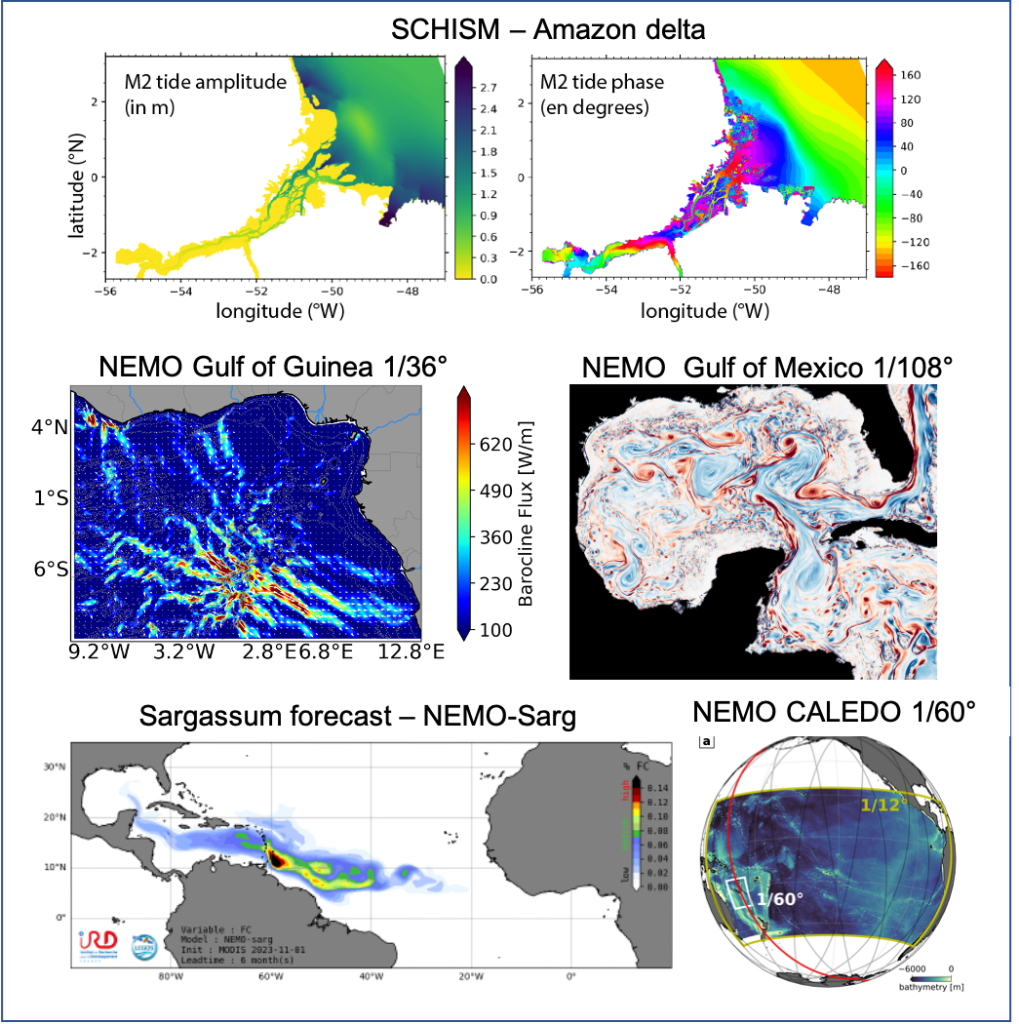
Projects
Research is conducted in three tropical basins.
Tropical Atlantic. The study regions are the Amazon plume, and the western edge system off Brazil, where interhemispheric exchanges of the Atlantic thermohaline circulation take place; the cold tongue of the equatorial upwelling and the Gulf of Guinea, key regions for the African climate; the Caribbean Sea and the Gulf of Mexico, where complex mesoscale and submesoscale structures interact.
Tropical Pacific. Studies focus on the Southwest Pacific and the Solomon Sea western boundary current system; the frontal region north of the equatorial cold tongue; and the Eastern Tropical Pacific, where the oxygen minimum zone is particularly extensive.
Indian Ocean. The main study area is the Bay of Bengal.
Much of this research is carried out in partnership with teams in New Caledonia, Brazil, Mexico, Senegal, Peru and Fiji.
News
Composition
Permanent staff
| First name LAST NAME | Grade – Employer |
| Julien JOUANNO | Team leader Senior Scientist – IRD |
| Elodie KESTENARE | Assistant Team Leader Research Engineer – IRD |
| Gaël ALORY | Assistant Physicist – CNAP |
| Sophie CRAVATTE | Senior Scientist – IRD |
| Fabien DURAND | Senior Scientist – IRD |
| Alexandre GANACHAUD | Senior Scientist – IRD |
| Florent GASPARIN | Research Scientist – IRD |
| Lionel GOURDEAU | Senior Scientist – IRD |
| Fabrice HERNANDEZ | Senior Scientist – IRD |
| Jérôme LLIDO | Research Engineer – IRD |
| Guillaume MORVAN | Engineer – IRD |
| Aurélien PAULMIER | Senior Scientist – IRD |
| Philippe TECHINE | Research Engineer – CNRS |
All team members
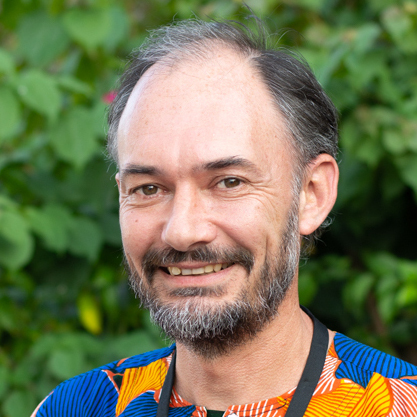
ALORY Gael
Enseignant-Chercheur / Research Professor , Ph. Adj. CNAP
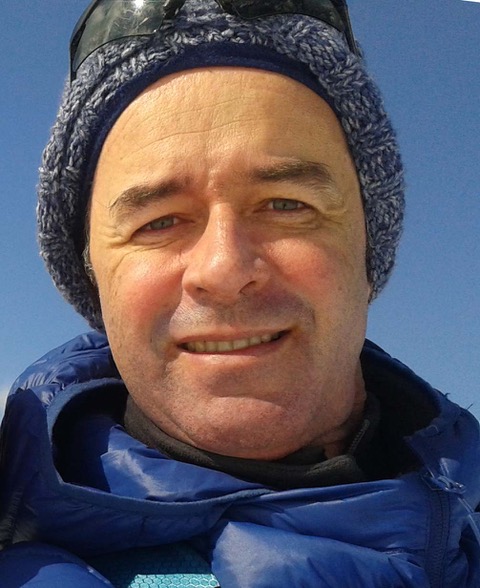
Durand Fabien
Directeur de Recherche IRD , DR IRD
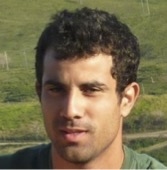
Gasparin Florent
Chargé de Recherche IRD
Gourdeau Lionel
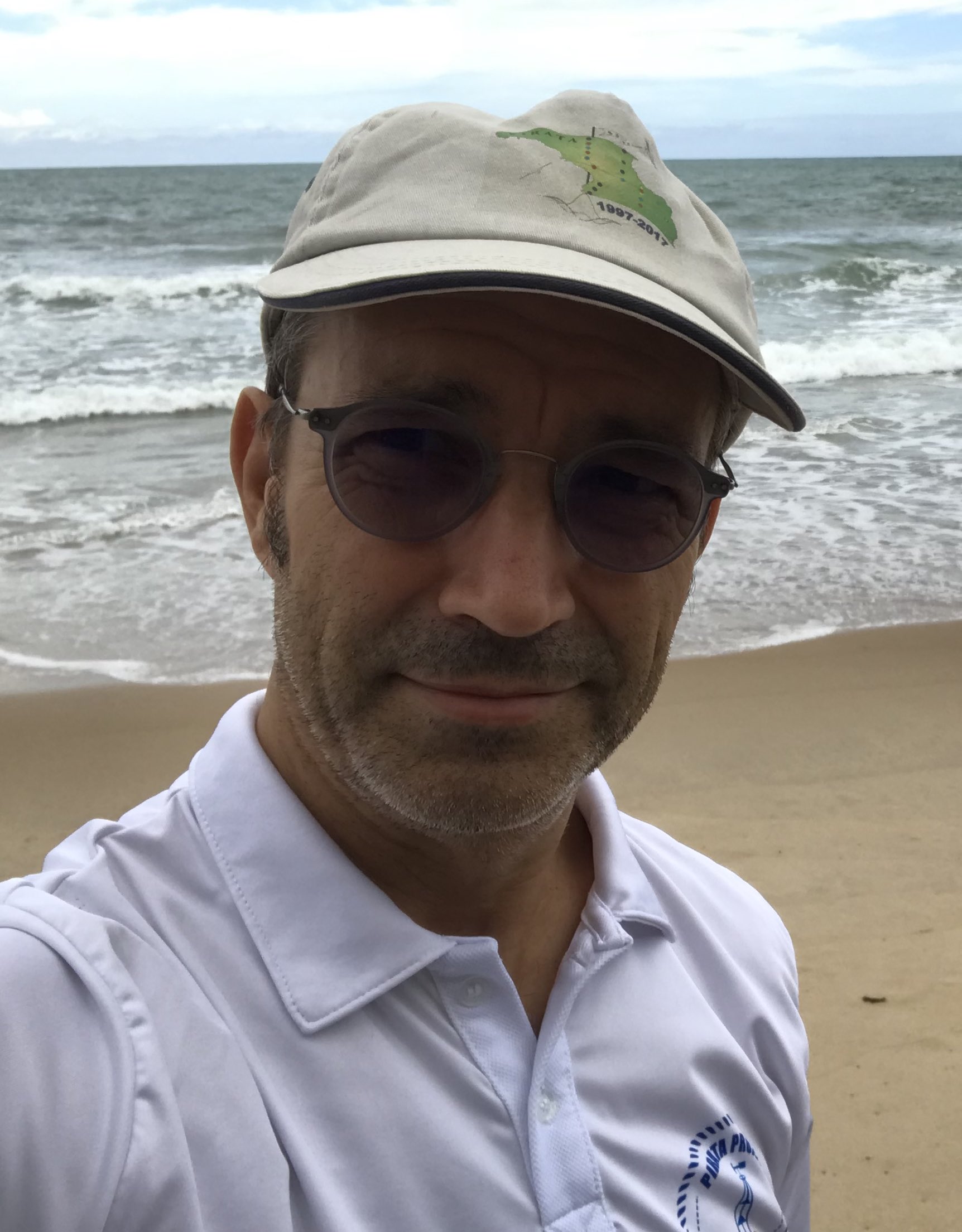
Hernandez Fabrice
CR IRD
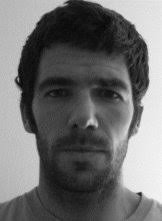
Jouanno Julien
Chercheur , Directeur de Recherche IRD
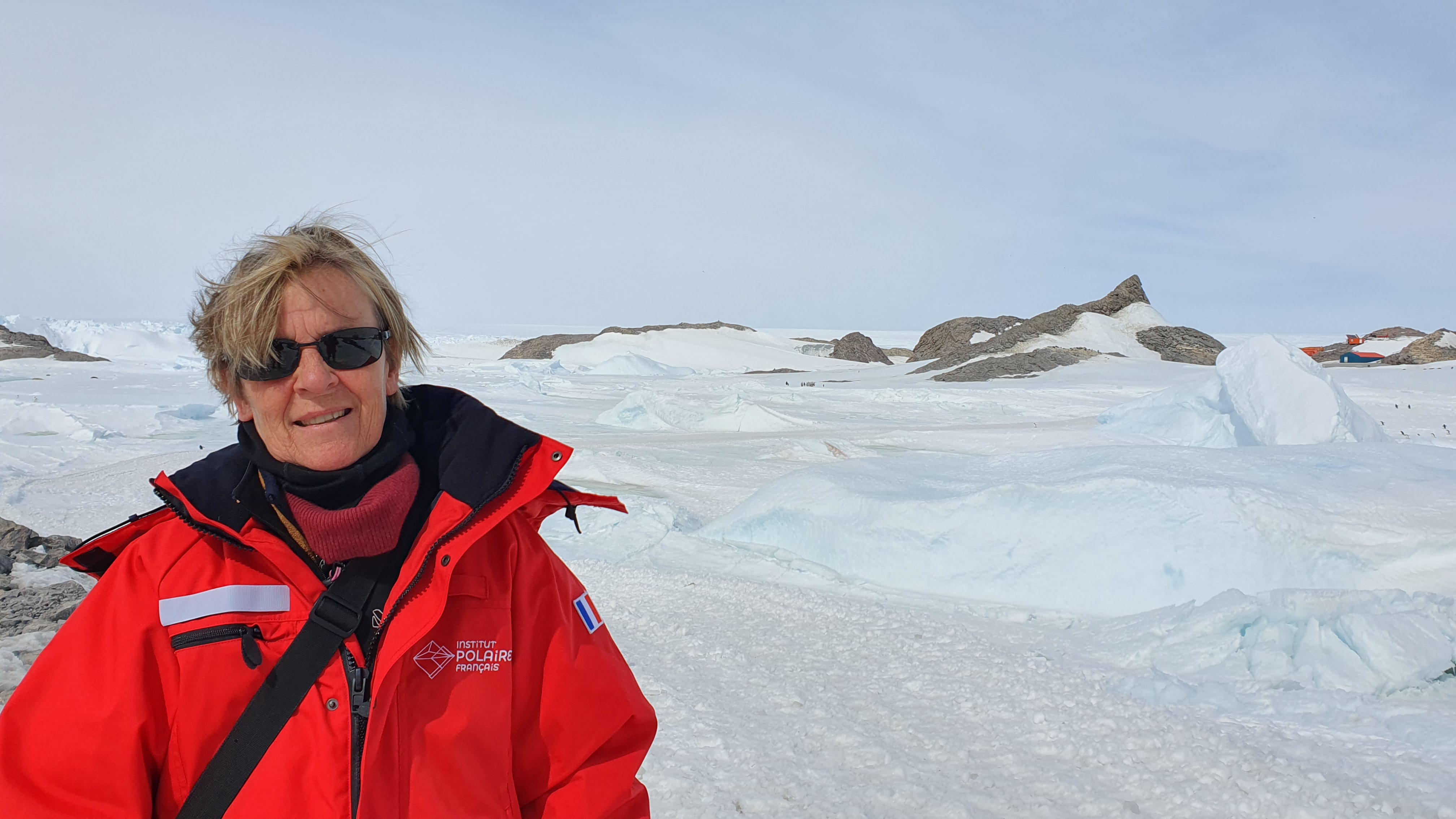
Kestenare Elodie
Ingénieur de Recherche , IRHC IRD
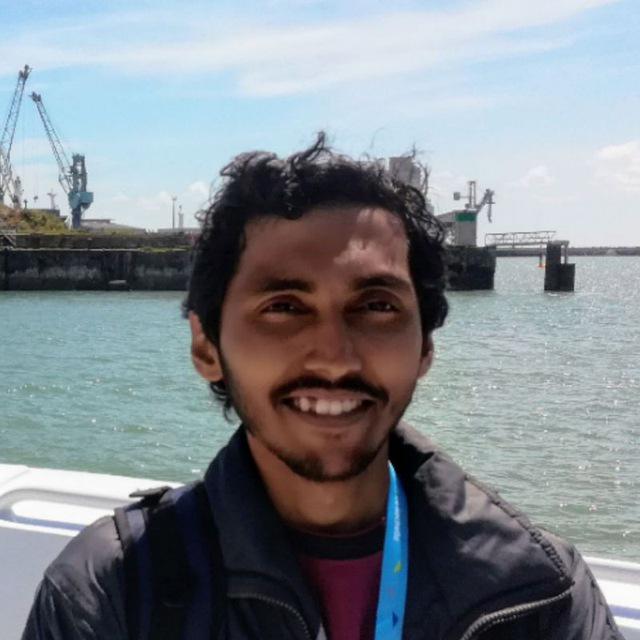
Khan Jamal
PostDoc
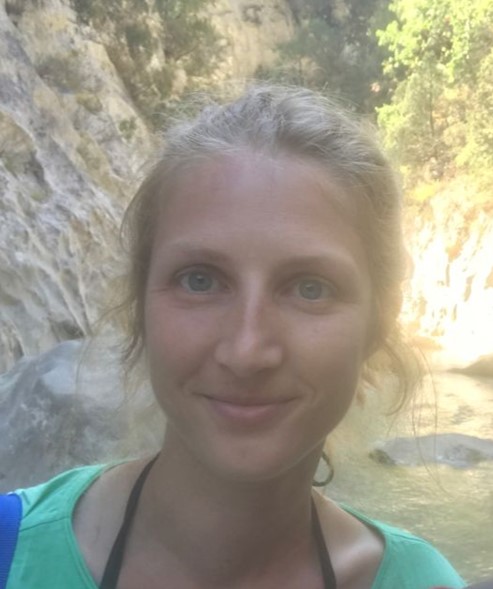
Parouffe Alexandra
PhD
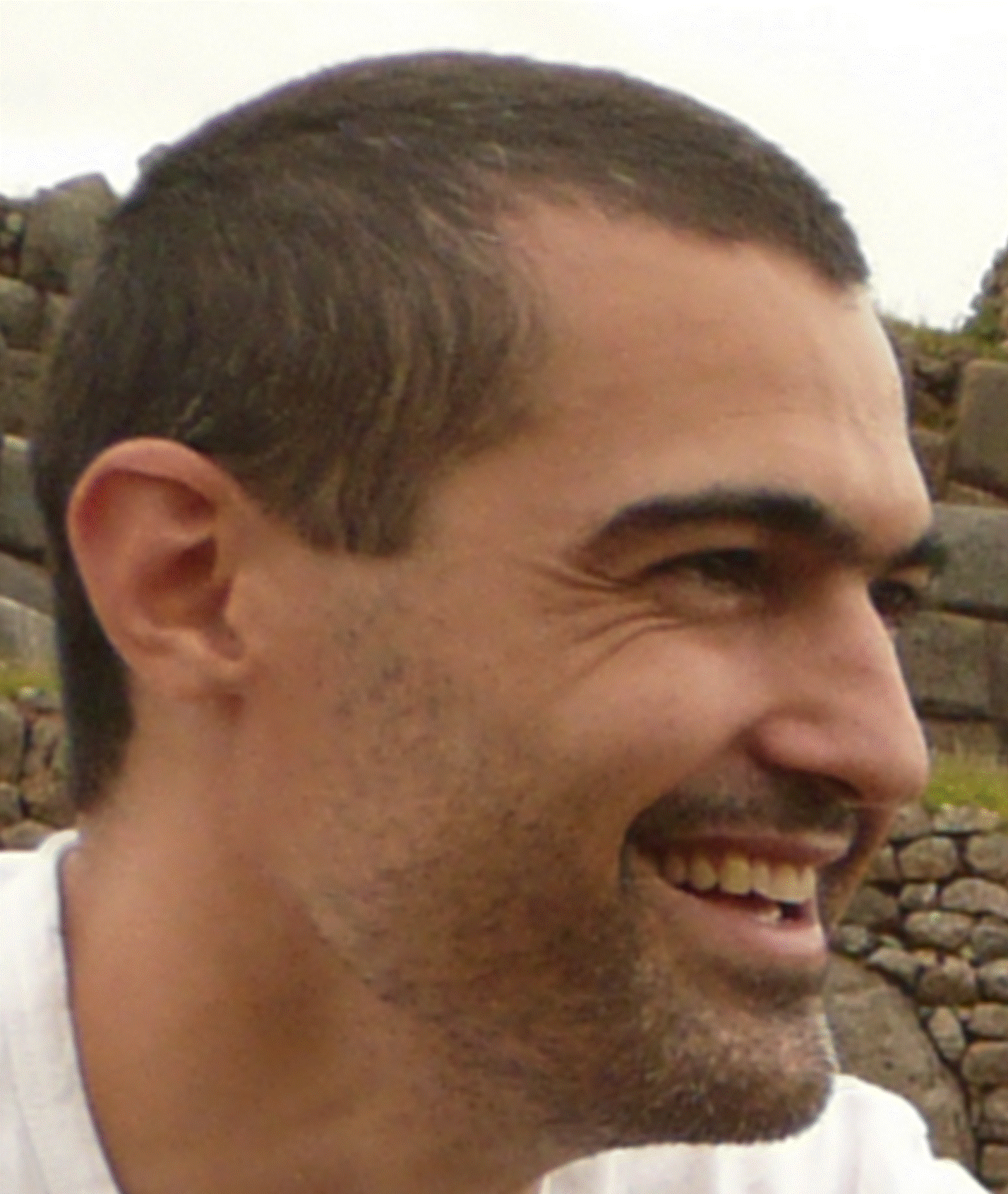
Paulmier Aurélien
Researcher , DR IRD

Téchiné Philippe
Ingénieur de Recherche , IRHC CNRS
